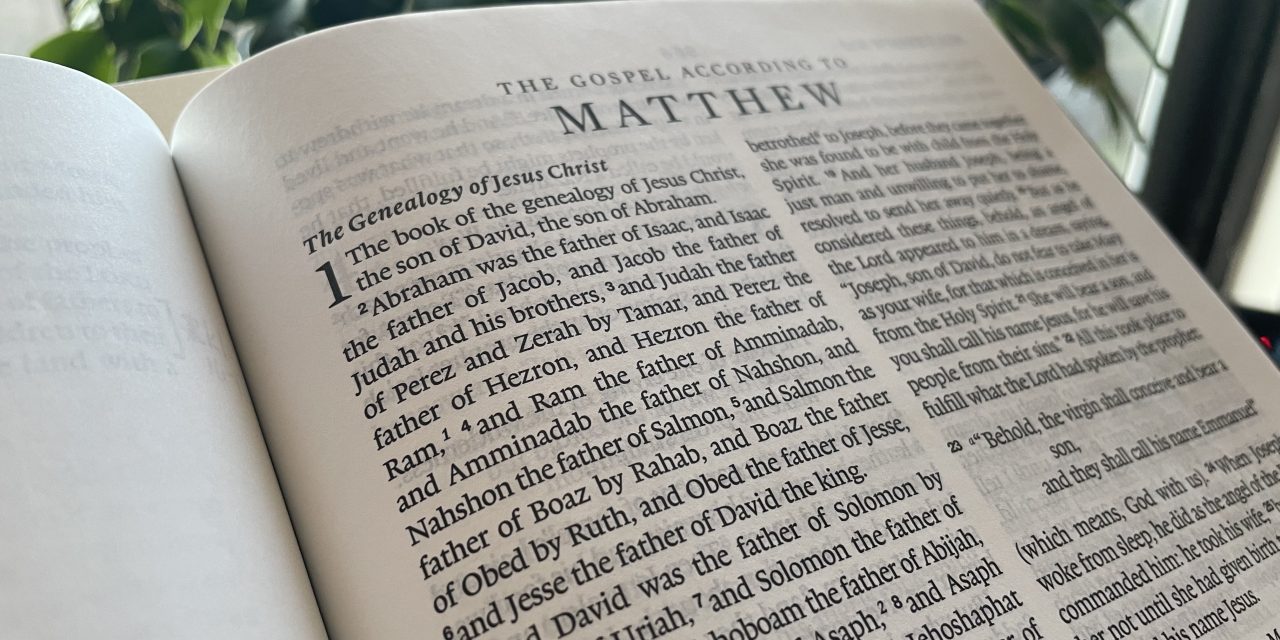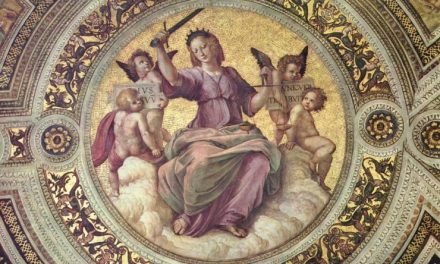“In this beginning of Matthew’s story, they hear much more than a list of names.”
Today begins the octave before Christmas. While octaves following important feast days (Easter, Christmas, Pentecost) are an important part of our liturgical celebrations, this octave precedes the feast. We are in the homestretch of preparation – we can see the light on the horizon. We pray the “O Antiphons” before the Magnificat during Vespers. The Gospel readings at daily Mass begin to tell the story of the birth of Christ as found in the Gospels of Matthew and Luke.
We begin with the opening of Matthew’s Gospel, the same reading we will hear at the Vigil Mass of Christmas: “The book of the genealogy of Jesus Christ, the son of David, the son of Abraham…”
At first glance, it seems to simply be a long list of names. We hear some familiar ones, like Isaac, Jacob, and Solomon. There are unfamiliar ones, like Shealtiel and Abiud. Why does Matthew begin this way? As Scripture scholar N.T. Wright joked, “Reading other people’s genealogies is about as exciting as watching other people’s holiday videos.”
But for the Jewish people, genealogies told a story. They gave identity. For example, as major characters arrive onto the scene in the Old Testament, we hear their genealogies. Who are these people? Where did they come from?
And this is no ordinary genealogy, after all. This is a genealogy of fulfillment. Matthew is asking his readers to remember the covenant made with Abraham: “…your offspring shall possess the gate of his enemies, and in your offspring shall all the nations of the earth be blessed, because you have obeyed my voice…” (Genesis 22:17-18). He wants us to remember the promises made to David: “…And your house and your kingdom shall be made sure forever before me. Your throne shall be established forever” (2 Samuel 7:16).
This is a genealogy of fulfillment. This is the Son of the promises.
When we read this genealogy, we must realize that the people who are hearing it for the first time have been waiting. For generations, they have been hearing promises and prophecies. So in this beginning of Matthew’s story, they hear much more than a list of names. They hear fulfillment and faithfulness. They hear hope and love.
Matthew takes us back to the beginning — the opening line could also be translated “the book of the genesis of Jesus Christ” — and reminds us that God is faithful. Through thousands of years of waiting, the promise made in Genesis 3:15 has been kept. The oaths made to Abraham, Moses, David have been remembered. The Lord has been true to his promises.
Let us read the genealogy in Matthew 1 with eyes of gratitude. Rather than simply a long cast of characters, it is a reminder of the fidelity of the Lord. Matthew reminds us through these names and events that the Lord does not abandon his people. Even when hope seems vain (Matthew’s reference to the Babylonian exile), the Lord is faithful. When the human beings involved in his plan stray (his reference to Bathsheba as she who “had been the wife of Uriah), the Lord accomplishes his work. Even through messiness and darkness and human frailty, the Lord is saving.
This is a genealogy of fulfillment. It is a genealogy of answered prayers. It is a genealogy tainted by mess but redeemed in glory. Come, Lord Jesus. Help me to hope in you and trust in your Word. You are faithful.














